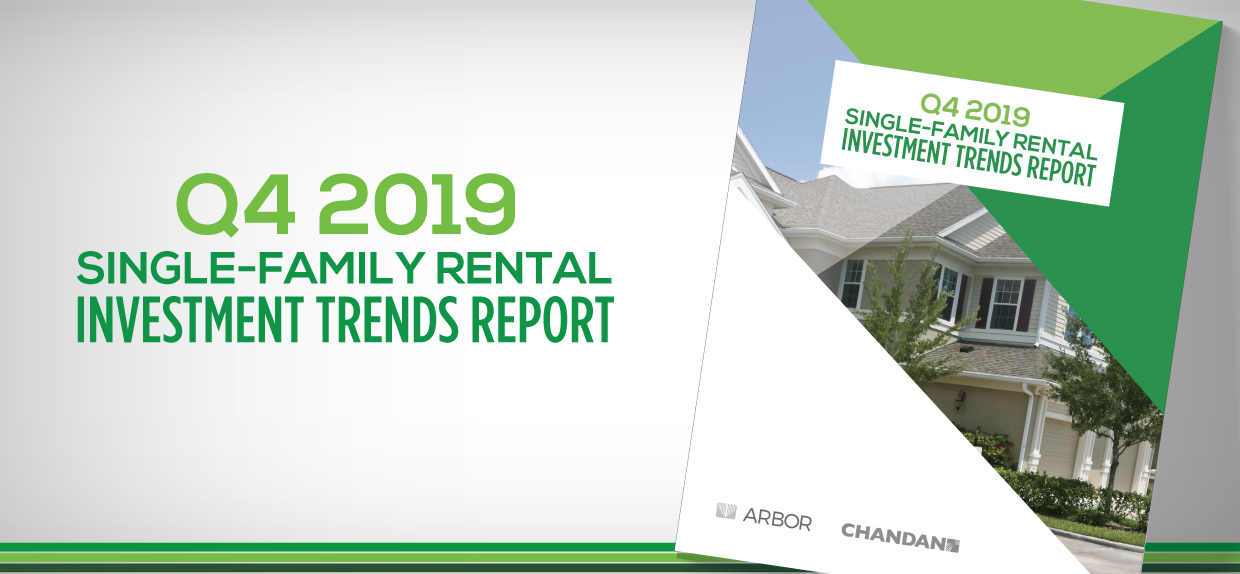SFR Starts Year with Strong First Quarter The Arbor Single-Family Rental Investment Trends Report Q1 2022, published in partnership with Chandan Economics, provides insights into the rapidly growing Single-Family Rental (SFR) market. Key Findings: Annual rent growth for lease renewals reached a new all-time high of 7.8%. Cap rates rose to 5.6% as cashflows are strengthening. Q1 2022 SFR securitizations have more than doubled from last year. Complete the form to instantly access the full report!
Current Reports
Our quarterly report on the current and emerging small multifamily investment trends features data and research from Chandan Economics. The report reviews the state of the market, identifying trends in underwriting, financing, cap rates, valuation and more. In the report, you’ll learn how small multifamily properties differ from larger properties, and the forces driving their investment performance.
Our quarterly report on the current and emerging small multifamily investment trends features data and research from Chandan Economics. The report reviews the state of the market, identifying trends in underwriting, financing, cap rates, valuation and more. In the report, you’ll learn how small multifamily properties differ from larger properties, and the forces driving their investment performance. Key Findings: Small multifamily originations are on pace to hit $64.4 billion in 2022, declining from a record-setting 2021 yet remaining elevated. Asset valuations rose 14.5% year-over-year, the fastest rate since 2004. Cap rates held steady near 5.2% for the fourth consecutive quarter. Complete the form to instantly access the full report!
Current Reports
The Spring 2022 Arbor Realty Trust-Chandan Economics Affordable Housing Trends Report provides comprehensive insight and analysis of major trends shaping affordable housing nationwide. Our report examines the major market developments and the outlook ahead.
Expert Insight and Analysis from Arbor Realty Trust and Chandan Economics The Spring 2022 Arbor Realty Trust-Chandan Economics Affordable Housing Trends Report provides comprehensive insight and analysis of major trends shaping affordable housing nationwide. Our report examines the major market developments and the outlook ahead. Key Findings: The Housing Choice Voucher program is receiving increased attention and funding. The proposed 2023 federal budget calls for a 17.4% increase in program allocations, and bipartisan lawmakers are pushing legislation to retain private landlords. States are increasingly adopting new measures to encourage the development of affordable supply, including supplemental state-level low-income housing tax credits and updates to zoning codes to allow for higher-density residential construction. After the CDC’s eviction moratorium was struck down in August, evictions remained well below their pre-pandemic averages as Emergency Rental Assistance funding saw an accelerated rollout, supporting 1.4 million households in Q4 2021. Complete the form to instantly access the full report!
Articles
The list of metros with noticeably higher permits per capita includes familiar growth markets such as Austin, TX, and Nashville, TN, but also under-the-radar markets like Bloomington, IN, and Rapid City, SD.
Articles
Climbing home prices, rising rents, and widespread inflation have combined to create a challenging economic climate for both businesses and individuals. Demand for affordable housing options remains high, though the current climate has exacerbated the affordability crisis that predates the pandemic.
FREDDIE MAC Credit Building Arbor is working to make the industry more equitable for everyone. This includes establishing new ways to improve economic mobility and narrow the wealth gap renters may face today. There are 44+ million renter households in the U.S., but less than 10% of on-time rents are reported to credit bureaus. Overall, renters have much lower credit scores than homeowners and some renters have no score at all (i.e., “credit invisible”). To address these disparities, Freddie Mac will incentivize borrowers to report on-time rents through credit-reporting servicers, such as Esusu Financial Inc. Esusu’s platform enables reporting on-time rent payments to the three major credit bureaus, helping build renters’ credit scores. Benefits for Renters Establish credit scores for renters who are currently “credit invisible” and gives them the ability to improve credit scores for those with existing records. A stronger credit score may enable renters to access diverse financing, obtain financing with lower interest rates, avoid unbreakable debt traps and qualify for future mortgages. Only on-time rental payments are reported to the credit bureaus; renters are automatically unenrolled Read the full article…











